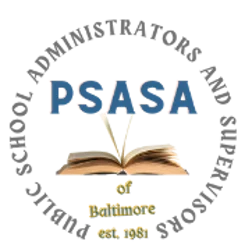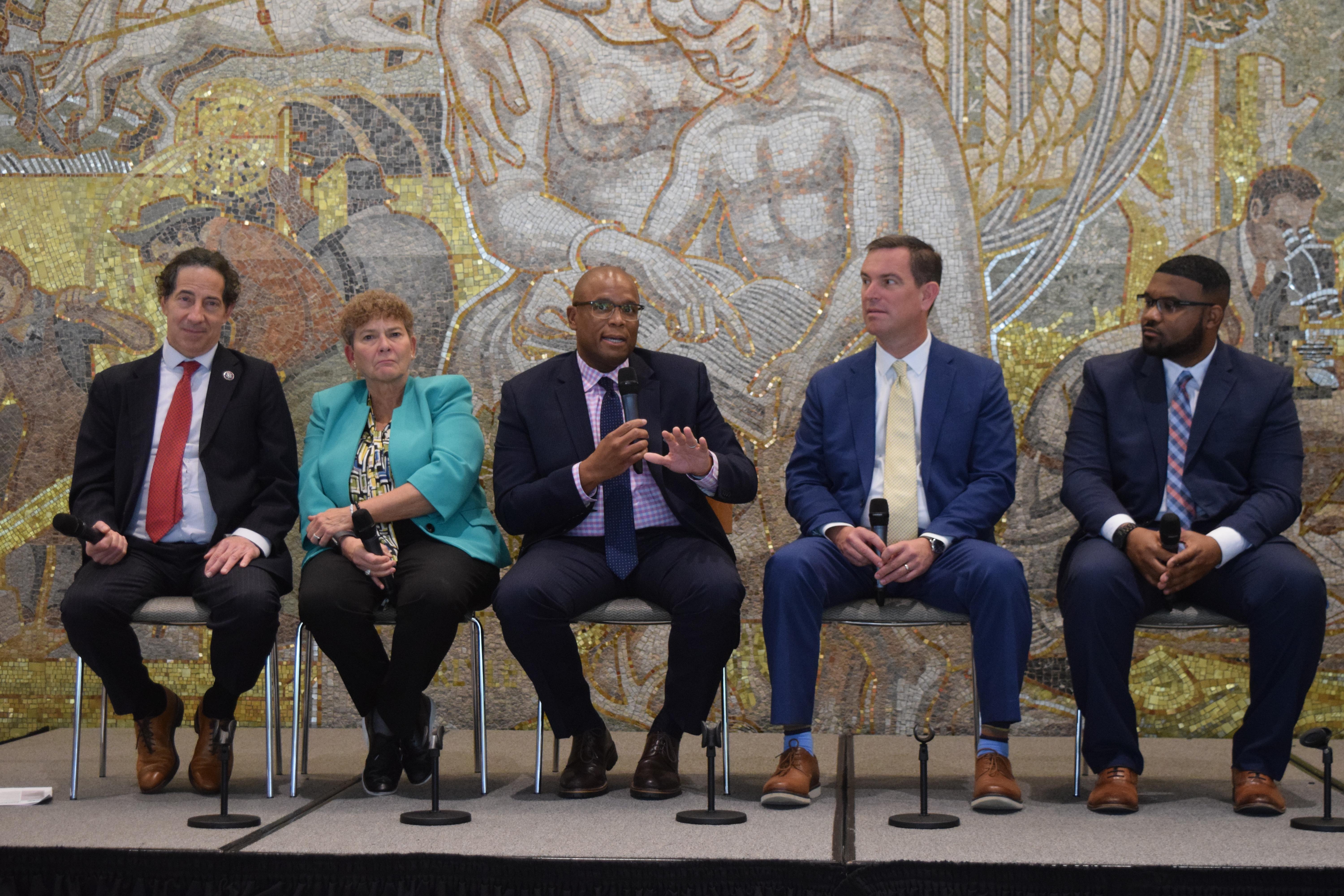Schools across the nation are filled with students and educators facing critical mental health issues and staff shortages, and principals are lacking the necessary resources needed to handle this growing crisis, according to a panel of front-line school leaders speaking during a National Principals Month policy briefing held in Washington, D.C.
According to educators, the schools students returned to this fall after two years of the pandemic are facing unprecedented challenges. Severe personnel shortages—lack of teachers, bus drivers, food service workers, counselors, mental health experts and other school professionals—are putting a great strain on building strong learning environments, and enhanced the struggle for academic recovery and equity.
Edward Cosentino, principal of Clemens Crossing Elementary School in Columbia, Maryland, and a member of the Howard County Association of Supervisors and Administrators, AFSA Local 36, noted that the number of students placed into suicide intervention programs in his school has “quadrupled” since the pandemic. With more and more students in crisis and inadequate mental health services in schools to meet those students’ needs, the burden of supporting student mental health has fallen mostly on principals, he said.
Additionally, Cosentino shared his personal struggle of caring for students and staff without proper support. Cosentino, who described himself as an incredibly positive principal, told the audience that he reached a point during the pandemic where the burden was so great that it was affecting his ability to do his job as a principal. About a year ago he admitted out loud for the first time in his career that he hated his job. He stressed that he no longer feels that way, and it took time to create a solid balance over his work.
“As principals, we are the ones responsible for the social and emotional health of our students and staff,” said Robert Motley, principal of Atholton High School in Howard County, Maryland, as well as president of Local 36. “We are the ones that shoulder that weight for our staff and our students and are making sure that their mental and emotional needs are met, but what about us? Who helps us?”
Today, Motley and Cosentino’s school district has supports in place for students that have distributed that burden more evenly, allowing principals to be successful in their other roles supporting students. “We were looked at as someone who had to have the magic wand in the front office; now we have mental health services,” Cosentino said. These new supports have made all the difference for him and he stressed, “I love, love, love my job and love my school.”
AFSA’s leadership is working to make sure that there are more principal success stories like Cosentino’s. At AFSA’s 2022 convention, delegates unanimously adopted a resolution supporting school leader wellness, noting that principal wellness is critical to student success.
Still, many school leaders have not received the same mental health supports that Cosentino and Motley have. School leaders across the country are dealing with staffing shortages of mental health professionals, teachers and even principals.
Panelist Sue Danielson, principal of Rosa Parks Elementary School in Woodbridge, Virginia, shared that staffing shortages are affecting her school and district. “We still have two positions in my building that have not been filled by certified teachers.…I know colleagues who don’t have seven or eight positions filled.”
Panelist Samuel Buckley, an assistant principal at Pikesville High School in Baltimore County, Maryland, shared his strategies for filling positions at his school, including establishing partnerships with local colleges, placing teacher paraprofessionals in classrooms as part of Baltimore County’s Grow Your Own Program and hosting ongoing career fairs. Using those strategies, Buckley was able to fill seven vacant positions within his school and then refer qualified applicants to other schools within his district. Filling staff shortages “is a shared responsibility among administrators,” Buckley said.
Panelists noted that staffing issues extend to principals as well, pointing to principal turnover as a key issue in public education. Danielson described some success from a mentoring program for new principals in her county, but noted that program is “principals taking care of principals” and thus creates an additional burden that distracts from a principal’s role supporting student success. That student performance is detrimentally affected by principal turnover is supported by scholarly research, including one study that found that turnover is associated with lower test scores, school proficiency rates and teacher retention.
Motley, also serves as an AFSA general vice president and chairs AFSA’s committee on Enhancing Principal Recruitment and Training, Improving Retention Rates Among Principals and Reducing Principal Turnover. He shared his difficulty trying to recruit principals in his district, pointing to a lack of mental health supports for school leaders and increased threats to administrators as public education is increasingly politicized. Motley thinks much of the issue comes down to public perception: “How do we change the perception of principalship to make it something that people want to do, that they aspire to be?”
In communities across the nation, principals face serious obstacles as they strive to create positive learning atmospheres and help students catch up. According to the National Association of Secondary School Principals’ 2022 Survey of America’s School Leaders and High School Students, 50% of school leader respondents say their stress level is so high they are considering a career change or retirement.
The event was hosted jointly by AFSA, the National Association of Elementary School Principals and the National Association of Secondary School Principals.
Speakers at the policy forum included:
- Rep. Jamie Raskin (MD-8)
- Roberto Rodríguez, Assistant Secretary for Planning, Evaluation and Policy Development, U.S. Department of Education
- Silvia Martinez, Office of Sen. Ben Ray Luján (NM)
- Dr. L. Earl Franks, NAESP Executive Director
- Dr. Leonard P. Pugliese, AFSA President
- Ronn Nozoe, NASSP CEO
- Denisa Superville, Assistant Editor, Education Week
To watch the full policy briefing, click here.

